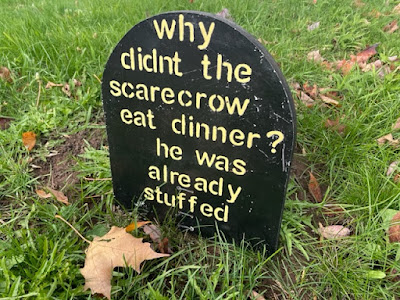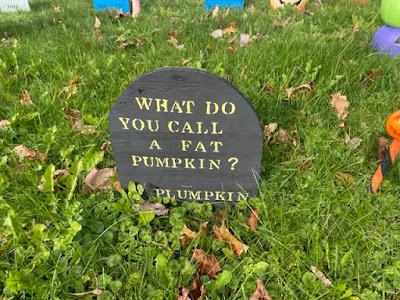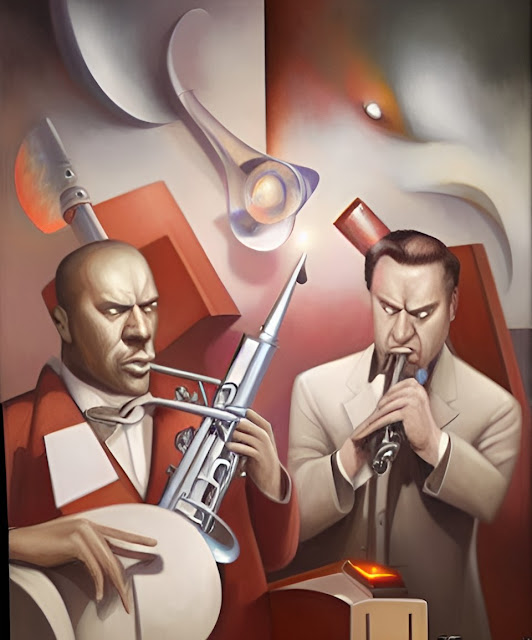I was thinking about cancel culture and an idea for a story emerged. I asked ChatGPT to write a 400 word story based on my idea. I then edited and expanded it to this 800 word story. Hope you find it entertaining.
Out of the Spotlight, Into the Saddle
 |
| Illustration by the author. |
In the small, dusty town of Dusty Gulch, a once-famous TV star had found solace in the forgotten corners of the past. His name was James "Jay" Thornton, once adored by millions, until a single tweet razed his career to the ground.
Driven by the desperate need to escape the relentless wrath of his fans, Jay acquired a time machine on the black market. Life as he’d known it was over forever.
One fateful day, he decided to try out his new toy, to give it a test drive. He wanted to see the future. Maybe he could find himself there. Unfortunately, the time machine malfunctioned, propelling him back to the year 1885 where he landed on a remote cattle ranch in the foothills of the Rockies.
Working as a humble ranch hand, Jay kept his past a well-guarded secret. He perpetually shunned the spotlight, now preferring the companionship of the open range and the simple folk of Dusty Gulch. One evening, in the dimly lit bunkhouse, Jay found himself sharing a bottle of whiskey with the other cowboys. As the alcohol flowed, the tales of their lives spilled out.
With a heavy sigh, Jay decided to reveal his own story. "You know, back in my time, I used to be famous.”
“Really? How’s that. You shoot somebody? Rob a train?”
“No, no, no, no. I was a famous actor on television," he began.
The cowboys exchanged perplexed glances. "Television? What's that, Jay?"
"Well," he continued, "it's a magic box that shows moving pictures, stories, and news on a screen. People used to watch it for hours on end."
“You mean, something like a Magic Lantern,” the Finn said.
“Sorry,” Jay said. “What’s a Magic Lantern?”
The Finn said, “I don’t know how it worked but it was kind of a thing where they used an oil lamp or lantern to shine through these glass plates and you would see images.”
Another cowboy interrupted. “We had a travelling showman come through these parts on the way to California and he put on a show with it, telling stories and projecting images onto a sheet we hung over a wire.”
“He said he was trying to sell them to schools or something like that,” a third added.
“Well,” Jay continued, “That's very interesting. I never heard of Magic Lanterns but you have something of an idea of pictures in boxes. In the future these boxes will show moving pictures. The box I'm talking about will be called a television set.”
“How do the pictures get into the box, Jay?”
Jay shook his head and rubbed at his chin with his knuckles. “It’s all very strange really. The box is connected to a device called an antenna, which receives a stream of signals from a broadcast station. The pictures go through the air and –“
He could tell by their expressions and the way they were fidgeting that they would never understand. The cowboys were scratching their heads, struggling to fathom this new concept.
"How'd you end up here, Jay?"
Jay took a deep breath. Another impossible question. He confessed, "I tweeted something that made a lot of people angry, and they canceled me. It ended my career."
"Canceled?" one cowboy asked.
“Tweeted?” another said. “You mean you made a sound like a bird or somethin’?”
“No, it’s sort of a communication platform.”
“Platform?”
“It’s kinda like an online Wild West show,” Jay said, shaking his head dismissively as the words “Wild West” popped out of his mouth.
The boys all chuckled.
“You’re not making any sense, Pard,” Big Burt said as he held out the bottle. “Better take another swig.”
Jay waved it away. “A tweet is like a message. Like those wanted posters back at the sheriff’s place.”
“Ah,” said a quiet cowboy off to his left. “So, you’re wanted.”
“No, no,” Jay replied. “I’m actually un-wanted. They took away my job.”
The cowboys burst into laughter. "Well, Jay, 'round these parts, we live by our own rules.”
Jay smiled, relieved by their reaction. "You're right. Life here is simpler, more honest."
The cowboys, now accepting him as one of their own, raised their glasses in a toast. "To Jay, the cowboy without a past!"
As Jay shared more stories of his time in the entertainment business, the cowboys listened in amazement, trying to imagine a world they could scarcely comprehend. For Jay though, the Wild West had become a sanctuary, far removed from the brutally unforgiving judgments of his former life.
In the bunkhouse in Dusty Gulch Jay Thornton found a second chance among people who judged him not by his past, but by the man he had become. They might never understand his world of television and tweets, but they respected him for who he was now – a cowboy who had found redemption in the embrace of the Wild West, far from the relentless scrutiny of the digital age.
* * * *
Just having fun. If you enjoyed this, feel free to leave a comment.































